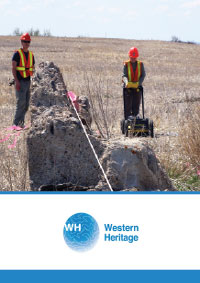Always efficient
The Department of Marine and Ports Services is a government agency dedicated to overseeing marine affairs in Bermuda. They are responsible for the safe movement of both international shipping and the operation of commercial and recreational boat traffic in local waters.
In order to live up to that responsibility, the Department contributes significantly to the public transportation system through the operation of the Ferry Service. They also administer and manage port operations including Pilotage, Tug and Line Boat assistance and the maintenance of all marine Aids to Navigation numbering some 188 in 65 miles of channel. Their other areas of operational responsibility include, but are not limited to, salvage work, boat and mooring registration, oil spill response, offshore marine search and rescue and seaport security.
Richard Russell is the Director of Marine and Ports, a role which he officially commenced in July 2014. He is a former Lieutenant Commander of the Jamaican Coast Guard, and comes from a long and acclaimed career in the maritime industry worldwide. During his time in the Coast Guard, for example, he also served as the Jamaican representative to the International Maritime Organisation Marine Environment Protection Committee.
Previous to that, Russell worked at the Jamaican Maritime Authority and during his tenure was instrumental in the establishment of Jamaica’s Port State Control Regime – which surpassed and continues to surpass the Caribbean Memorandum of Understanding on Port State Control requirements for the inspection of foreign flagged vessels visiting Jamaican Ports.
While serving as a Nautical Surveyor, Lieutenant Commander Russell also served on several committees dealing with port and ship security, matters pertaining to fisheries, and marine pollution and environmental issues. He brings all that experience and more to his role in the Department of Marine and Ports Services.
Overcoming challenges
Today, the Department of Marine and Ports Services consists of four main divisions. One of which is the ferry service – which is important to Bermuda, as travelling by ferry is an excellent way to get around, and gives passengers the opportunity to see Bermuda’s beauty from a unique vantage point.
The main ferry terminal is located at Albuoy’s Point in Hamilton along with 10 others located island-wide. The Department manages these terminals and oversees a fleet of ferries that are clean, spacious, air-conditioned and efficient.
“The challenge there is keeping our service running with a somewhat aging fleet, while providing a top-of-the-line customer experience,†Russell explains. “We’ve been doing fairly well at that so far – especially during the tourist season, when we have an influx of sometimes up to 10,000 people on the island. We have to move those people efficiently around the island so they enjoy their stay, and we have that down to a T.â€
Tourist season is considered to begin in April. At the end of 2014’s tourist season, Russell says the Department received reports indicating they did “an excellent job of transporting tourists around the island.†He aims to earn that same high level of feedback this year and in years to come.
As for the aging fleet, Russell says the Department is actively looking at upgrading to improve lifting capacity. They are also currently upgrading their port infrastructure. In 2016, Royal Caribbean will introduce their new Quantum of the Seas cruise ships into Bermuda, and the Department is currently finalising plans that will make those arrivals efficient and easy.
Another common challenge for the Department is “trying to make a good thing even better,†which they are doing in multiple ways across their divisions.
For example, one of the Department of Marine and Ports Services’ main focuses is Seaport Security. Russell says the Department already sets a very high standard in that arena, but they are still looking for improvements where possible, such as by looking into infrared cameras and improvements to the radar and marine VHF systems.
The Department also sets a high standard when it comes to environmental sustainability, Russell adds, but they are looking at new initiatives there as well. He explains that their bigger vessels can burn over 166,000 litres of fuel over a 20 weekend period in the winter. This winter, they are changing the vessels they use on weekends to reduce that number to 11,200 litres of fuel.
“Those are the kinds of initiatives we’re looking to put in place,†Russell says. “We’re doing that for both environmental reasons and monetary reasons. With budget constraints, we always have to look at ways of making the services more efficient.â€
The Department of Marine and Ports Services is also responsible for the annual licensing of all private boats, commercial tour boats and moorings in Bermuda. Additional duties that fall under this umbrella include small boat wreck removals, inspections of foreshore encroachments, management of small boat channels and processing applications for mooring piles and floating docks. The Department also helps to resolve disputes involving individuals and their boats and moorings.
Currently, the Department has roughly 5,000 moorings they are in charge of inspecting and licensing. They also have more than 7,000 small boats on their register, 100 charter boats and about 200 rental vessels.
“We’re expecting that the charter boat fleet will increase drastically because of the America’s Cup in 2017,†Russell reports. “That’s going to be a challenge, and we’re gearing up to meet it.â€
Strong relationships
The Department of Marine and Ports Services employs roughly 170 people and has an exceptionally low turnover rate. Many people join the Department when they’re young and stay there until they retire. According to Russell, that loyalty is partially a result of the pride they take in their work.
“Bermuda is relatively small, it’s 65,000 people,†he says. “For a government department to employ 170 of them, it has to be quite significant.â€
The Department is also significant in terms of equipment, Russell adds. They own a substantial fleet including three tugs, six High Speed Catamaran Ferries, three conventional mono hull ferries , a 740 passenger Ship Tender and a Buoy Tender. They also have two pilot boats, which double as search and rescue boats, and a number of smaller vessels which they use for inspections and other purposes.
According to Russell, those ships – and the other equipment that the Department utilises – are sourced from long-term suppliers, some dating back as far as 25 years. Russell says they have forged such strong relationships because they pay on time, and because they communicate clearly.
Plus more
Moving forward, Russell says the Department of Marine and Ports Services will continue to seek out improvements and overcome any challenges that may arise.
“We’ll have to change old equipment, work on new plans and polishes and do everything we can to do more within our means,†he says. “The country depends very heavily on tourism, so our service must go on. We can’t afford for our service to fail.â€
Bermuda has a population of roughly 65,000 people. Every day during the summer months, with the exception of Saturdays, they host as many as 10,000 visitors on the island.
“Moving those people around is a huge challenge for a transportation system to meet,†Russell says. “The coordination between our department and the other transportation departments on the island – the buses and the taxis, et cetera – has to be superb, and it is.â€
“People get upset when they pay money for a cruise, only to get off the ship and have to stand around, because they can’t get to a destination they planned to,†he continues. “We can’t allow that to happen. We have to make sure people can walk off a cruise ship, get onto a ferry and half an hour later be in downtown Hamilton, or an hour later be in St. George’s.â€
“The Department functions as it’s supposed to function, plus more, and we’re very proud of that,†Russell concludes.










